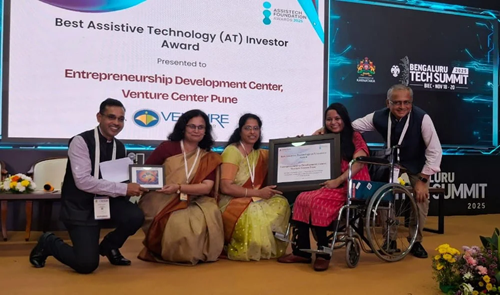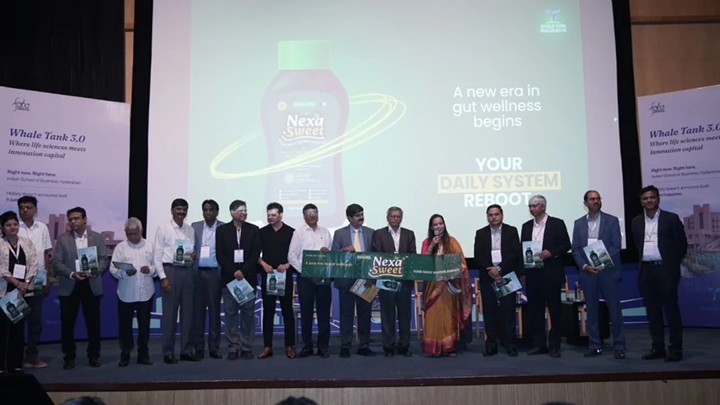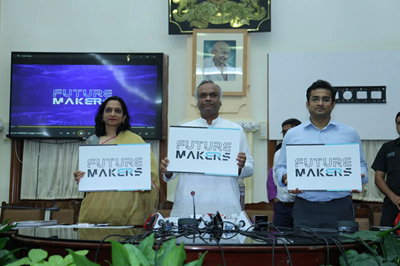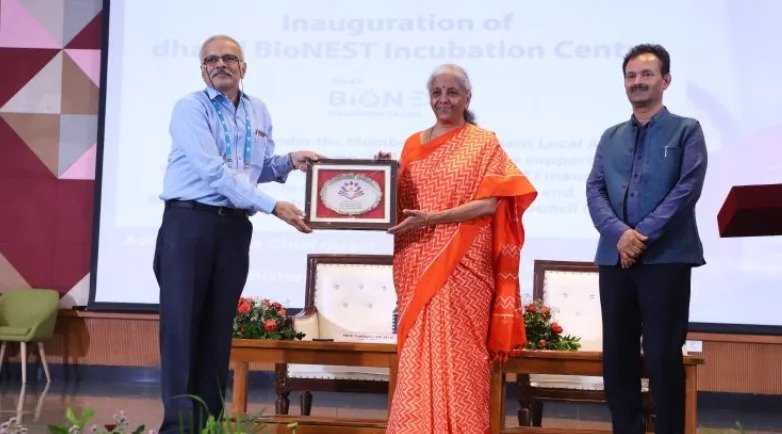Innovative Japanese Biotech Startups Pushing the Boundaries of Global Healthcare
From cutting-edge cancer therapies to pioneering gene editing and digital health solutions, Japan's biotech startups are leading the charge in transformative medical advancements.

Japan’s biotech industry is home to a wave of groundbreaking startups revolutionizing healthcare on a global scale. Companies like Chordia Therapeutics, PeptiDream, and EditForce are pioneering innovations ranging from novel cancer treatments to advanced DNA/RNA editing technologies. These startups, often spun out of prestigious universities and backed by significant partnerships, are not only shaping Japan’s drug discovery ecosystem but also contributing to global advancements in fields such as radiopharmaceuticals, gene therapy, and regenerative medicine.
Chordia Therapeutics, is a clinical-stage biotech company focused on developing innovative anti-cancer drugs. Spun out from major companies and supported by academic discoveries from Kyoto and Miyazaki Universities, Chordia is advancing cancer therapies like CTX-712, a CLK inhibitor currently in clinical trials in Japan and the US. In 2020, Chordia out-licensed its MALT1 inhibitor CTX-177 to Ono Pharmaceutical, securing significant upfront and milestone payments. Committed to collaborative research, Chordia aims to deliver new treatments for cancer patients and contribute to Japan's drug discovery ecosystem. The startups received the Minister of Education, Culture, Sports, Science and Technology Award at the ‘Japan Startup Awards 2024’.
PeptiDream Inc. is leading the translation of macrocyclic peptides into a whole new class of innovative medicines to address unmet medical needs and improve the quality of life of patients worldwide. In its radiopharmaceutical business, through its wholly-owned subsidiary PDRadiopharma, PeptiDream markets and sells a number of approved radiopharmaceuticals and radiodiagnostics in Japan, as well as leveraging its proprietary Peptide Discovery Platform System (PDPS) technology to discover and develop a deep pipeline of innovative targeted radiotherapeutics and radiodiagnostics, spanning both wholly-owned internal programmes and globally partnered programmes.
EditForce, Inc., a Kyushu University-originated startup developing a unique DNA/RNA editing technology (PPR platform technology), was established in May 2015 by KISCO Co., Ltd. and Prof. Takahiro Nakamura of Kyushu University (former president of EditForce and currently its scientific advisor) and funded by companies and funds that have track records of investing in life sciences and biotechnology. EditForce aims for drug discovery that applies the PPR technology through joint research with universities and private companies.
PRISM BioLab is a discovery and development biotechnology company utilising proprietary PepMetics technology to discover orally available small molecule inhibitors of protein-protein interaction (PPI) targets and transform lives of patients suffering from cancer, autoimmune, fibrosis and other diseases. PepMetics are a unique class of small molecules that mimic three-dimensional structures of alpha-helix and beta-turn, the peptide structures commonly found in intracellular PPI interphases and receptor-ligand interactions. By combining proprietary chemistry, know-how around PPI targets and AI-supported design, PepMetics technology can deliver inhibitors of challenging PPI targets. PRISM BioLab is collaborating on new PPI targets with global and Japanese pharmaceutical companies.
Restore Vision Inc., a biopharmaceutical company based in Japan, is pioneering the development of gene therapy to restore vision in patients blinded by photoreceptor loss. Their lead product, RV-001, utilises adeno-associated virus (AAV) vectors to deliver a unique functional gene coding ‘Chimeric Rhodopsin,’ a protein-based optical sensor designed to restore sight. Recently securing 1.9 billion yen in Series A financing and receiving support from Japan's AMED, Restore Vision is rapidly advancing RV-001 towards pre-clinical development and clinical trials, with the goal of becoming the world’s first gene therapy for vision restoration.
Healios is advancing research on an immuno-oncology treatment for solid tumours by using gene-edited NK cells (eNK cells) with enhanced killing abilities. Healios is advancing research on UDCs, which are next-generation iPS cells with a low risk of immune rejection regardless of HLA type created using gene-editing technology, aiming to establish a next generation technology platform to develop more efficient and safer regenerative medicine products.
Aculys Pharma is a clinical stage biopharmaceutical company that is pioneering ways to eliminate drug lag/drug loss in Japan, and is working to resolve social issues related to neurological and psychiatric diseases. Its corporate name was created from the philosophy of serving as a ‘Catalyst to Access.’ Aiming to act as a bridge for innovative medical care in the field of neuropsychiatry, Aculys Pharma develops and commercialises novel pharmaceuticals and provides innovations for better medical care to patients, their families, healthcare professionals, and society.
Heartseed Inc. was founded in 2015 to develop and commercialise cardiac revascularisation therapy developed by Professor Keiichi Fukuda and his group at the Department of Cardiology, Keio University, Tokyo, Japan. Heartseed has proprietary technologies throughout the entire manufacturing process of the cardiomyocyte-cell product, including purification, cell delivery and iPSC production. Heartseed announced the global collaboration and licence agreement with Novo Nordisk A/S for HS-001 in June 2021. Heartseed received ‘Minister of Science and Technology Policy Award’ at Japan Venture Awards 2021 and ‘Ministry of Education, Culture, Sports, Science and Technology Award’ at Academic Startups 2021, and ‘Most Promising Pipelines Awards (iPSC)’ at Asia Pacific Cell & Gene Therapy Excellence Awards 2022.
CureApp is involved in the research and development, production, and sale of therapeutic apps which have demonstrated their effectiveness in a clinical trial, and are prescribed by doctors to patients at medical clinics. In 2020, CureApp developed the world’s first smartphone-based medical device program for disease treatment to receive regulatory approval and insurance coverage in the field of smoking cessation. CureApp is also proceeding with the development of a number of other therapeutic apps for other diseases, including NASH, alcohol addiction, cancer, chronic heart failure, and chronic low back pain.
These Japanese biotech startups exemplify the country’s commitment to advancing medical science and improving patient outcomes worldwide. With their cutting-edge innovations and collaborative research efforts, they are poised to make lasting impacts on global healthcare.
Published on : 20th September, 2024
BIO-TECH
-
IHH Healthcare and Fortis launch ‘IHH Catalyst’ to strengthen India’s healthcare innovation ecosystem 11th February, 2026

-
Venture Center receives ATF 2025 Honour for supporting assistive technology innovations 24th November, 2025

-
Vaidam Health and Vanuatu's Ministry of Health ink MoU to strengthen cross-border healthcare access 20th November, 2025

-
Whale Tank Biocatalysts hosts Startup-Investor Meet WT 3.0 in Hyderabad 17th November, 2025

-
BTS 2025 to host India’s largest entrepreneurship platform “Future Makers Conclave” on Nov 20 06th November, 2025

-
Bessemer Venture Partners leads Rs 125 Cr Series A funding in fertility startup Pluro 04th November, 2025

-
dhaRti BioNEST Incubation Centre opens at Indian Institute of Technology (IIT) Dharwad 15th October, 2025





